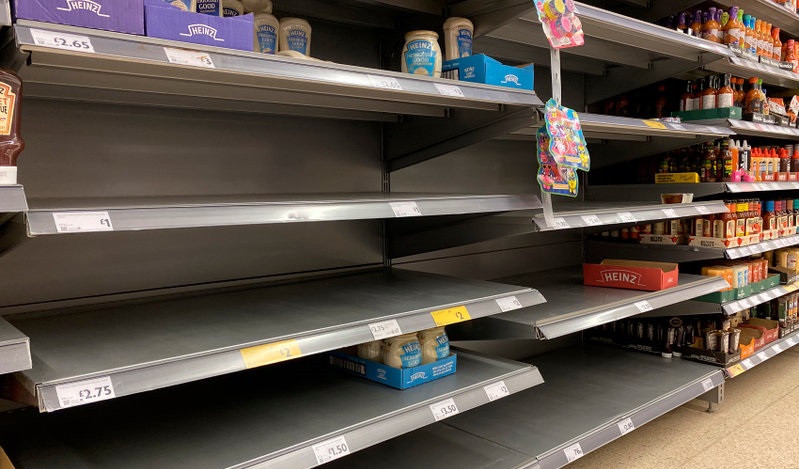
The majority of European consumers are worried about food shortages as the war in Ukraine and ensuing effects have made food production more vulnerable.
New research from a consortium of universities in Europe shows that 53% of consumers hold concerns about food shortages.
And over half (54%) of those surveyed think that the Ukraine war is the main reason for increased food prices in Europe.
The ‘Changes in food behaviour in times of crisis’ study, led by Aarhus University, Denmark, surveyed 5,000 consumers in ten European countries, including the UK.
It found that more than half surveyed (55%) think that the war in Ukraine has had a negative impact on food production.
The project is a follow-up study to research conducted in 2020, which demonstrated that Covid-19 lockdowns may have caused lasting behaviour change in relation to food consumption.
Since the last study, the effects of rising prices have been keenly felt by consumers, with shoppers observing price increases for most categories of food.
The sharpest of these perceived price rises are in animal-based products, with 55% saying they have seen significant price increase in red meat, 52% in fish, and 51% in dairy.
Nearly half think that these costs are being unfairly distributed, with 48% of those surveyed believing that the war has enabled food retailers and manufacturers to make more profit.
Consumers are reacting to increased prices by cutting costs where they can, including buying less, buying cheaper brands, and shopping at cheaper stores.
Nearly four in 10 consumers (37%) report that they are buying less red meat, while a third are buying less fish and poultry (33% for each).
Shoppers are also cutting back entirely on certain categories to save money, with one in 10 consumers (12%) having stopped buying convenience foods altogether.
To cut costs on cereals and dairy products, a third of consumers say they have switched to buying a cheaper brand (35% and 33% respectively).
Klaus G Grunert, of Aarhus University, said the crisis in Ukraine and global economic downturn presented "unique and considerable threats" to the food system.
"We hope that this new research will empower decisionmakers to craft informed and timely policies that adequately tackle mounting consumer concerns regarding spiralling food costs.
“It is also important that policymakers continue to uplift the significant progress made by consumers to make more healthy and sustainable food choices."
